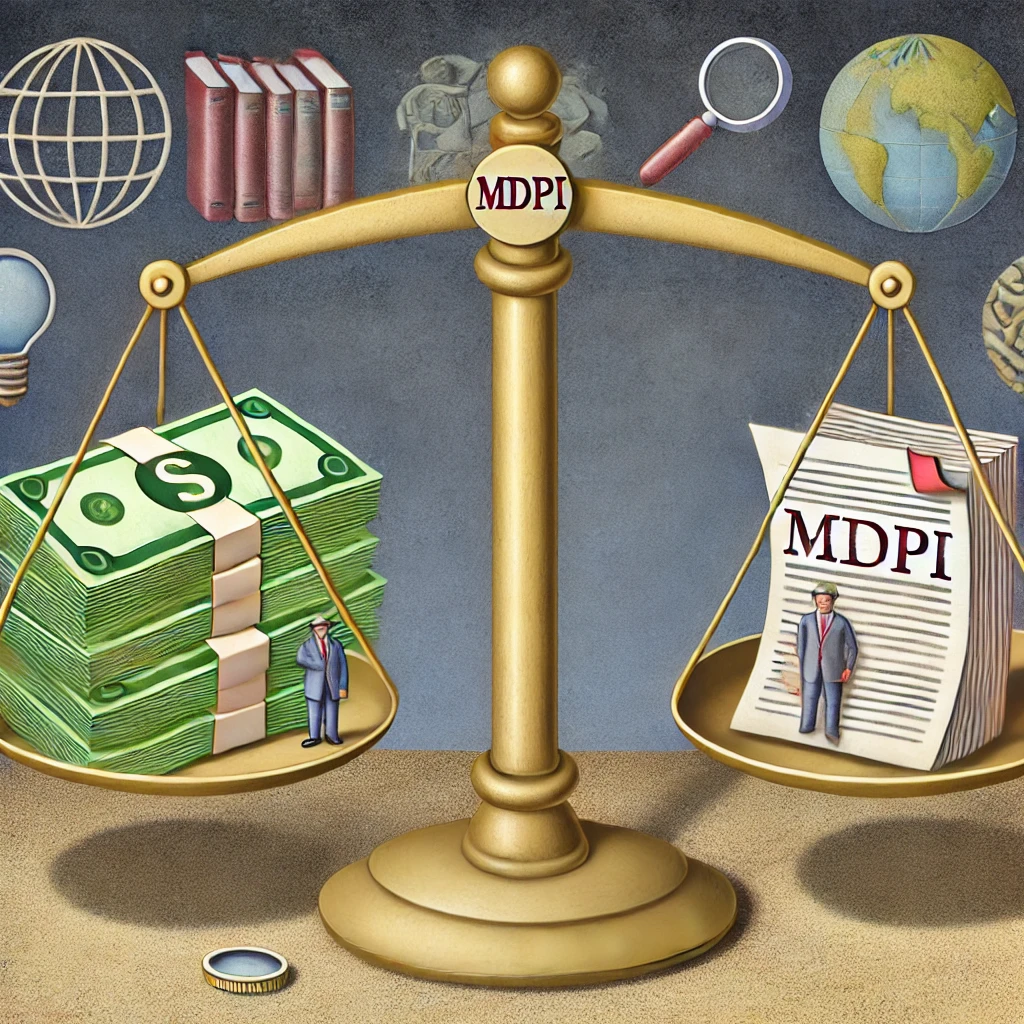 Researchers considering where to publish their work must be increasingly cautious, particularly with ongoing concerns about the practices of certain open-access publishers like MDPI. The Council for Nutritional and Environmental Medicine (CONEM) has long opposed the use of publication fees, viewing them as a potential threat to the integrity of scientific research (1).
Researchers considering where to publish their work must be increasingly cautious, particularly with ongoing concerns about the practices of certain open-access publishers like MDPI. The Council for Nutritional and Environmental Medicine (CONEM) has long opposed the use of publication fees, viewing them as a potential threat to the integrity of scientific research (1).
These fees can create financial barriers that undermine the objectivity and accessibility of scientific knowledge, particularly for researchers from less wealthy institutions or developing countries. Although managing and sustaining the credibility and scientific impact of any new academic journal involves significant economic and financial burdens and new journals should be welcomed as an opportunity to expand the field of contributions, researchers who declare the absence of funds and can demonstrate it should be wholly waived from any article processing charge or publication fee.
This concern is not isolated. In recent years, major academic and governmental bodies have taken steps that reflect growing unease about the practices of publishers like MDPI. For instance, the Ministry of Universities in Malaysia has prohibited public universities from using state funds to publish in MDPI journals. This decision was made in response to worries about academic integrity, particularly the potential for conflicts of interest when journals prioritize speed and volume of publication over rigorous peer review.
The Chinese Academy of Sciences has also expressed concern by placing several MDPI journals on its “Early Warning Journal List” for 2024. This list highlights journals engaging in questionable practices, such as citation manipulation. Although being on this list does not equate to a ban, it serves as a significant caution to Chinese researchers, potentially affecting the international reputation of these journals.
Furthermore, some MDPI journals are being reevaluated by primary indexing services like Scopus. For example, the journal Sustainability had its indexing paused due to concerns about its rapid publication rate and unusual citation patterns. If Scopus decides to delist these journals, the research published within them could lose visibility and credibility in the academic community.
CONEM’s stance against publication fees aligns with these broader concerns. The organization advocates for the free and fair dissemination of scientific knowledge, untainted by financial incentives that could compromise the quality of research. As the academic landscape evolves, researchers must carefully consider where they publish to ensure their work remains credible, accessible, and in line with the highest ethical standards.
References
1. Maintaining opposition to publication fees. https://www.conem.org/research/research-profile/publication-fees (assessed 2 September 2024).